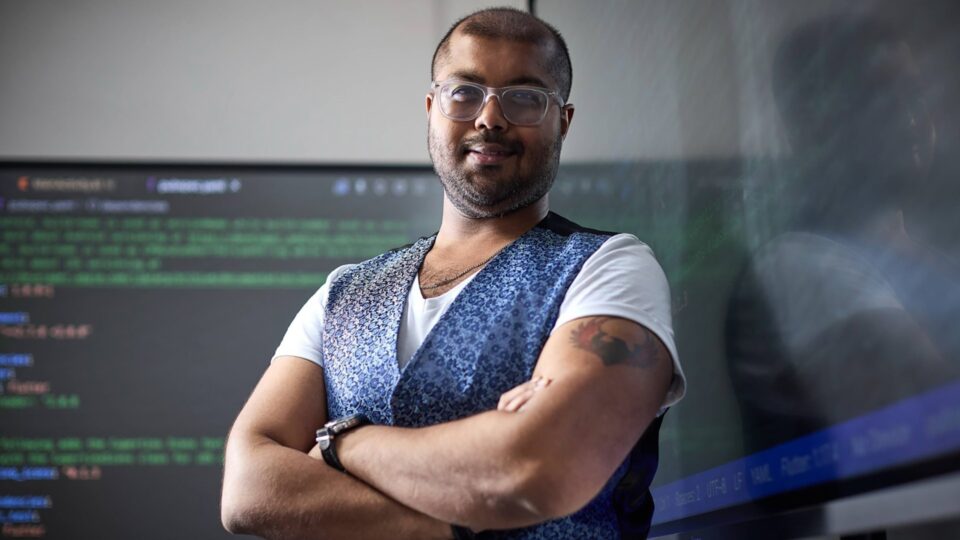National innovation award for AI powered help to cut household food waste
Data scientist from York St John University is on a mission to help us to keep track of what’s in our fridge and cupboards
An artificial intelligence expert has won a national innovation award worth £50,000 to further develop a sustainability app that is helping to cut global food waste.
Dr Somdip Dey, a Lecturer in Data Science at York St John University, has been announced as a recipient of an Innovate UK Unlocking Potential Award, which recognises inspirational innovators who are tackling pressing global issues.
The £50,000 grant will fund the further development of Dr Dey’s Nosh app, which uses machine learning to help households reduce food waste and, in turn, save money and cut their carbon footprint. Based on the success of the Nosh app, Dr Dey also cofounded Nosh Technologies, the company behind the Nosh app.
“Every year we waste more than 1.3 billion tonnes of food worldwide, while food wastage contributes to almost 10% of global carbon emissions. Astonishingly, a third of all food produced is never consumed,” said Dr Dey.
The Nosh app was developed during the first COVID-19 lockdown in response to changing food shopping habits. It helps households keep track of what they have in their fridge and cupboards. Regarded as one of the best food waste apps for more sustainable eating habits by The Independent and Delish, Nosh has already helped consumers save more than 590,000 different food products and save carbon emissions by more than 290 tonnes.
The Innovate UK Unlocking Potential Award will help Dr Dey take the app to the next level. By refining the artificial intelligence algorithms, the app will offer even more personalised and precise insights to users.
By analysing users’ consumption patterns, purchase habits and even regional seasonal produce availability, the app will provide recommendations tailored to individual households to curb waste and carbon emissions while saving money on food.
“We envision a future where households are empowered with the knowledge to make informed decisions, reducing their carbon footprint and promoting sustainability. By leveraging the power of machine learning, we hope to pave the way for smarter consumption patterns, one household at a time, ensuring that food ends up on plates, not in bins,” Dr Dey said.
Recognising that change is a collective effort, part of the project is also to engage communities.
“Through the Nosh app, we’ll foster a space where users can share their success stories, tips and even recipes that align with the goal of reducing waste,” Dr Dey added.

